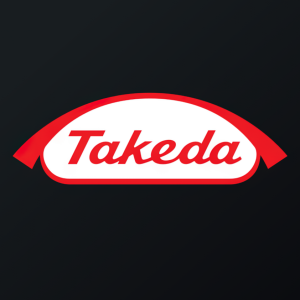Takeda to Present Additional Clinical Trial Study Data Highlighting the Impact of Orexin Agonist TAK-861 on the Burden of Narcolepsy at Sleep Europe 2024
− Presentations Include New Data from the TAK-861-2001 Phase 2b Trial in Narcolepsy Type 1 Highlighting Impact on Daily Functioning Including Cognition and Sleep Quality
− Data from Long-Term Extension Study will also be Presented
− Phase 3 Trial of an Orexin Agonist for Narcolepsy Type 1 Now Enrolling Patients Globally
Takeda’s scientific presentations will include a podium presentation highlighting the effect of TAK-861 on cognitive impairment (Abstract No: 781) along with several poster presentations from additional exploratory endpoints including impacts on quality of nocturnal sleep and sustained attention. An interim analysis of safety and efficacy from the ongoing LTE study (Poster No: P1291) will also be presented.
“People living with narcolepsy suffer from debilitating symptoms that significantly impact their daily life beyond excessive daytime sleepiness and cataplexy,” said Elena Koundourakis, head, orexin franchise development & neuroscience programs and portfolio strategy at Takeda. “As leaders in orexin science, we continue to develop one of the most extensive clinical datasets of orexin agonists, with some patients reaching one year of treatment within our clinical studies. The data we are presenting at Sleep Europe add to the body of orexin agonist data we are building to improve our understanding of orexin biology and the potential of our investigative study drug TAK-861 towards establishing a new standard of care for the NT1 community.”
These data presentations add to the scientific community's growing understanding of the potential of OX2R agonists in redefining treatment outcomes for patients with NT1. Takeda is continuing the development of tailored assets to address the needs of people living with sleep-wake disorders including narcolepsy type 2 and idiopathic hypersomnia.
More information on the FirstLight Study, which is currently enrolling, can be found at www.clinicaltrials.gov (identifier: NCT06470828) and www.firstlightstudy.com (for
About Takeda’s Orexin Agonists for Sleep-Wake Disorders
Takeda is advancing the field of orexin therapeutics with a multi-asset franchise offering tailored treatments to unlock the full potential of orexin science. Orexin is a key regulator of the sleep-wake cycle and is involved in other essential functions, including respiration and metabolism. TAK-861 is the leading program in this franchise and received Breakthrough Therapy designation for the treatment of excessive daytime sleepiness in narcolepsy type 1 from the
About Takeda
Takeda is focused on creating better health for people and a brighter future for the world. We aim to discover and deliver life-transforming treatments in our core therapeutic and business areas, including gastrointestinal and inflammation, rare diseases, plasma-derived therapies, oncology, neuroscience and vaccines. Together with our partners, we aim to improve the patient experience and advance a new frontier of treatment options through our dynamic and diverse pipeline. As a leading values-based, R&D-driven biopharmaceutical company headquartered in
Important Notice
For the purposes of this notice, “press release” means this document, any oral presentation, any question and answer session and any written or oral material discussed or distributed by Takeda Pharmaceutical Company Limited (“Takeda”) regarding this release. This press release (including any oral briefing and any question-and-answer in connection with it) is not intended to, and does not constitute, represent or form part of any offer, invitation or solicitation of any offer to purchase, otherwise acquire, subscribe for, exchange, sell or otherwise dispose of, any securities or the solicitation of any vote or approval in any jurisdiction. No shares or other securities are being offered to the public by means of this press release. No offering of securities shall be made in
The companies in which Takeda directly and indirectly owns investments are separate entities. In this press release, “Takeda” is sometimes used for convenience where references are made to Takeda and its subsidiaries in general. Likewise, the words “we”, “us” and “our” are also used to refer to subsidiaries in general or to those who work for them. These expressions are also used where no useful purpose is served by identifying the particular company or companies.
Forward-Looking Statements
This press release and any materials distributed in connection with this press release may contain forward-looking statements, beliefs or opinions regarding Takeda’s future business, future position and results of operations, including estimates, forecasts, targets and plans for Takeda. Without limitation, forward-looking statements often include words such as “targets”, “plans”, “believes”, “hopes”, “continues”, “expects”, “aims”, “intends”, “ensures”, “will”, “may”, “should”, “would”, “could”, “anticipates”, “estimates”, “projects” or similar expressions or the negative thereof. These forward-looking statements are based on assumptions about many important factors, including the following, which could cause actual results to differ materially from those expressed or implied by the forward-looking statements: the economic circumstances surrounding Takeda’s global business, including general economic conditions in
Medical Information
This press release contains information about products that may not be available in all countries, or may be available under different trademarks, for different indications, in different dosages, or in different strengths. Nothing contained herein should be considered a solicitation, promotion or advertisement for any prescription drugs including the ones under development.
View source version on businesswire.com: https://www.businesswire.com/news/home/20240919392083/en/
Media Contacts:
Japanese Media
Jun Saito
jun.saito@takeda.com
Rachel Wallace
rachel.wallace2@takeda.com
Source: Takeda Pharmaceutical Company Limited







